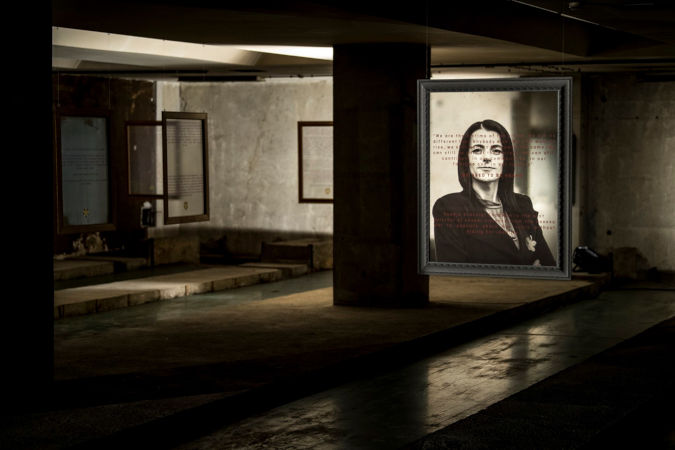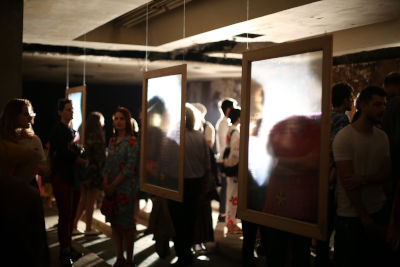FemArt7 in Kosovo focuses on Freedom vs. Shame to encourage more women in decision-making and peacebuilding
Artists and activists at the 7th edition of FemArt, a UN Women supported regional festival, engaged with visitors in a series of dynamic events to confront the stigma surrounding conflict-related sexual violence, and encourage women to live their lives free of prejudice and shame.Date:

Held from 10-16 June in Pristina, Kosovo[1], the FemArt 7 regional festival of women artists and activists brought together 100 women artists from across the Balkans who presented their art inspired by social and human rights issue, while advocating for women’s rights and the inclusion of women in peace building efforts within the region.
The theme of FemArt 7 was Freedom vs. Shame, which was organized by the Center for Art and Community - Artpolis, and supported by UN Women, aimed to encourage women to take ownership of their lives, free of judgment and prejudice.
Organized as a platform to promote women’s rights and women‘s inclusion in peace-building across the Balkans, street art, concerts, theatre, films, poetry, music, fashion, art performances and installations, book promotions, exhibitions, workshops and panel discussions were part of the extensive festival programme.
Traditional views on gender roles have left women in Kosovo under-represented in decision-making at all levels. Survivors of conflict-related sexual violence remain stigmatized and a culture of shame and silence surrounds the issue. Nearly two decades after the armed conflict in Kosovo, survivors of conflict related sexual violence are finally able to apply for compensation at the Commission for the Verification and Recognition of Sexual Violence Victim Status in Kosovo, the establishment of which was supported by UN Women.
The Be my Face exhibition, portraying stories of conflict-related sexual violence survivors, kicked off the Festival. Held in the Hotel Grand, Pristina, it was the site 20 years ago of numerous conflict-related sexual violence crimes. “By showing the stories of survivors in the same place where they happened, we highlight the delayed justice, and to sympathize with the survivors,” said Festival Director Zana Hoxha Krasniqi.

In the panel Peace Promoters-Young Feminists from Kosovo and Serbia, young women from the Alternative Girls Center in Serbia, and Artpolis in Kosovo shared their experiences and how important collaborations like theirs were to move forward with reconciliation.
Other activities included a book promotion and regional discussion on Intergenerational Dialogue on Feminist Activism in (Post) Yugoslav space. On this topic, Vlora Nushi, Head of UN Women, said: "It’s important to use art to reach out to young generations in creative ways, and sensitize them on the importance of collaborating, so that they can share a future without conflict. UN Women strongly supports such initiatives.”
Activities within FemArt Festival were organized as part of the UN Women, UNDP-UNV, and UNICEF joint project towards a peaceful, prosperous and sustainable future in Kosovo, funded by the United Nations Peacebuilding Fund.
Click here to learn more about UN Women in Kosovo.
[1] All references to Kosovo on this website shall be understood to be in full compliance with UN Security Council Resolution 1244 (1999).